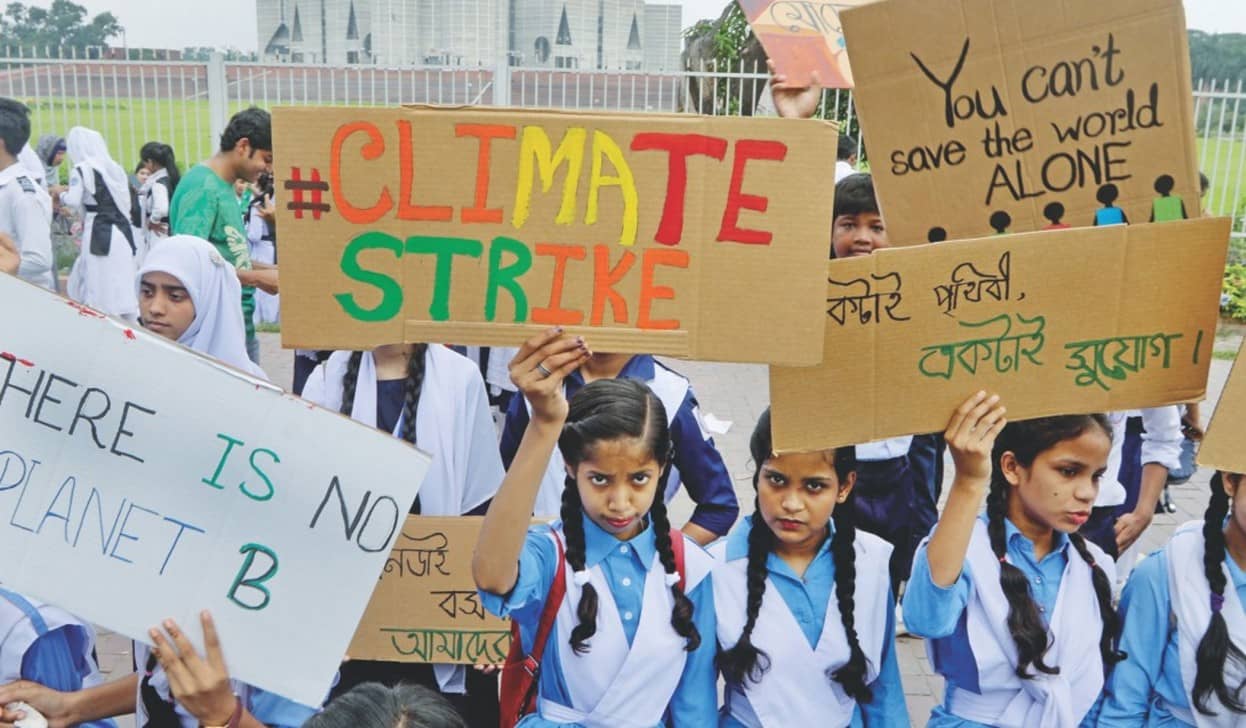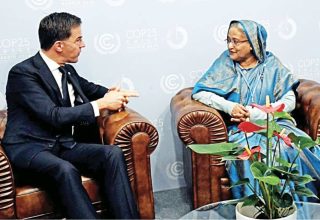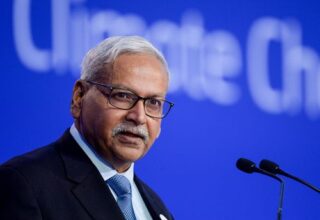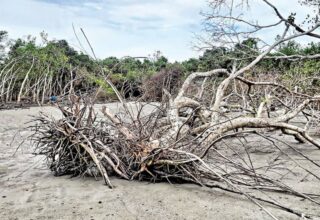
As we are now well into the second decade of this century, it is widely acknowledged that this coming decade is our last opportunity to keep the increasing rate of the global atmospheric temperature below 1.5 degrees Celsius and prevent the catastrophic impacts of human-induced climate change from occurring around the world. This is a very clear message from the scientific community to the world and is the direst warning they have given so far.
But how does the scientific community work, and what are their latest findings? How can we build on the scientific consensus and take the message across the world, not just for world leaders, but for all people on the planet through a sense of global solidarity, if we are aiming to avert globally catastrophic impacts after 2030?
The scientific community has been very well-organised under the United Nations through the Intergovernmental Panel on Climate Change (IPCC), who have brought together thousands of scientists from different disciplines and from all countries to carry out periodic assessments of the state of knowledge about climate change. I have had the privilege of being one of the scientists involved as a lead author in the third, fourth and fifth assessment reports of the IPCC, along with a good number of other eminent scientists from Bangladesh. The IPCC is currently finalising its sixth assessment report and we will be getting the results over the coming months. At the same time, the IPCC has also published special reports on specific topics over the years and the one on the 1.5 degrees Celsius temperature increase limit in particular will be discussed below.
The first point I will make is that over the 30 years that the IPCC has been making these assessments, they have always provided scenarios of how things will develop in the future, with upper and lower estimates of how bad the results will be. Now that they have produced these reports for so long, they have found that the actual observations of climate impacts over the last few decades have tracked very closely with the worst-case scenarios from early reports, and indeed in some cases (such as the rise in sea levels), the actual observations have been even worse than the worst scenarios from the earlier reports. Hence, the climate change impacts are likely to be even worse than what we had feared earlier.
The second important message from the IPCC is that there is a big difference in potential impacts between the global temperature being below 1.5 degrees Celsius and above 2 degrees Celsius (what we are currently headed towards). This big difference has to do with who will be most affected. In other words, if we can keep the global atmospheric temperature increase below 1.5 degrees Celsius, then most of the world’s vulnerable communities and countries can adapt, but with an increase of over 2 degrees Celsius, adaptation will be almost impossible for hundreds of millions of the poorest people on the planet. Hence, the very clear message from the scientific community is to keep the global atmospheric temperature increase below 1.5 degrees Celsius, which is still possible—although not easy.
The third important finding is that the transition from a fossil fuels-based global economy and energy system to more sustainable energy systems based on renewable energy sources, such as solar and wind, are now becoming cost-competitive and completely viable going forward. Therefore, the race to zero emissions of greenhouse gases can now take place by shifting investment from fossil fuels to renewable energy worldwide.
Finally, the key message from the scientific community is that world leaders must now listen to science and act accordingly if the worst-case scenarios are to be avoided. This particular message has been reinforced by the Covid-19 pandemic and the evidence of a higher number of deaths in countries where leaders did not follow the scientific guidelines, as opposed to lower deaths in countries where guidelines were enforced more by leaders. This is a lesson that all world leaders need to accept and act upon when they meet at COP26 in Glasgow, Scotland in November this year. This is in fact the last opportunity for the world leaders to take the level of action that will keep the global atmospheric temperature increase below 1.5 degrees Celsius.
At the same time, we cannot afford to leave everything to our world leaders, as they have always shown reluctance to take the kinds of actions that are required. As has already been pointed out by the scientific community, we are living in a state of planetary emergency and we need to take drastic actions that are commensurate with the scale of the emergency, and not just incremental steps forward which will be completely inadequate.
Hence, it is incumbent for all sections of society in every country to mobilise and take necessary actions at the local and national levels to tackle climate change, but also at the global level through a strong sense of solidarity across borders and continents. An excellent example is being shown by the Fridays for Future movement initiated by the young Swedish environmental activist Greta Thunberg, who took individual action by boycotting school every Friday and sitting on her own with a placard in front of the Swedish parliament in Stockholm. This has led to a huge global movement across all countries of the world, with school children boycotting classes every Friday—the biggest such strike taking place last Friday. The school kids in Bangladesh were very much involved in the Fridays for Future movement as well.
We now need to encourage other groups, including private sector companies, parliamentarians, mayors of cities, governors of provinces, vulnerable communities and all conscious citizens in all countries to reach out to each other from a sense of solidarity, to combat a truly global problem by building a truly global movement.
As Bangladesh now leads the Climate Vulnerable Forum (CVF) of most vulnerable countries, we have a great opportunity to express this sense of solidarity with the other nearly 50 countries in the CVF through citizen-to-citizen networks and collaboration. This will go a long way towards enabling the world to avoid the catastrophic impacts of climate change in coming decades. After all, we only have nine more years of this decade left to act.
Originally this article was published on March 24, 2021 at Daily Star. The author Prof. Saleemul Huq is the director of the International Centre for Climate Change and Development (ICCCAD) at the Independent University, Bangladesh (IUB).
Email: saleemul.huq@icccad.org






